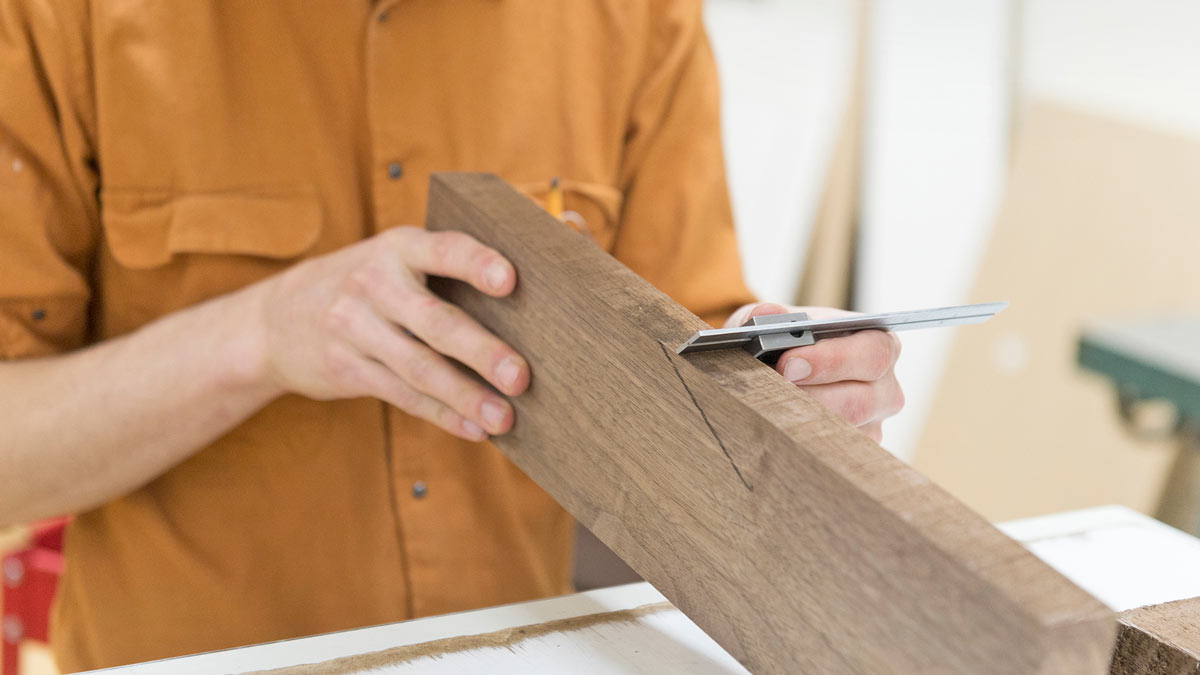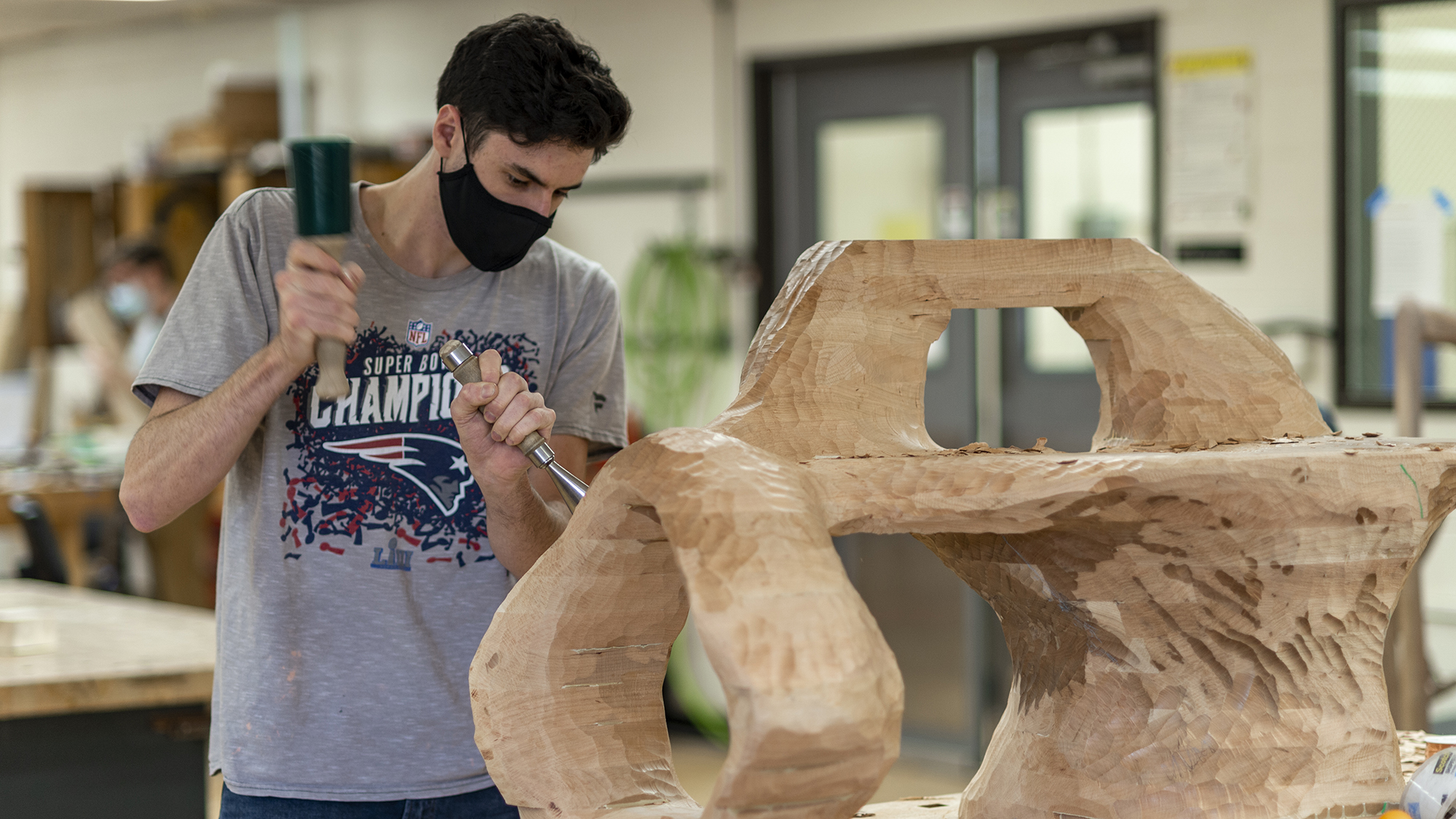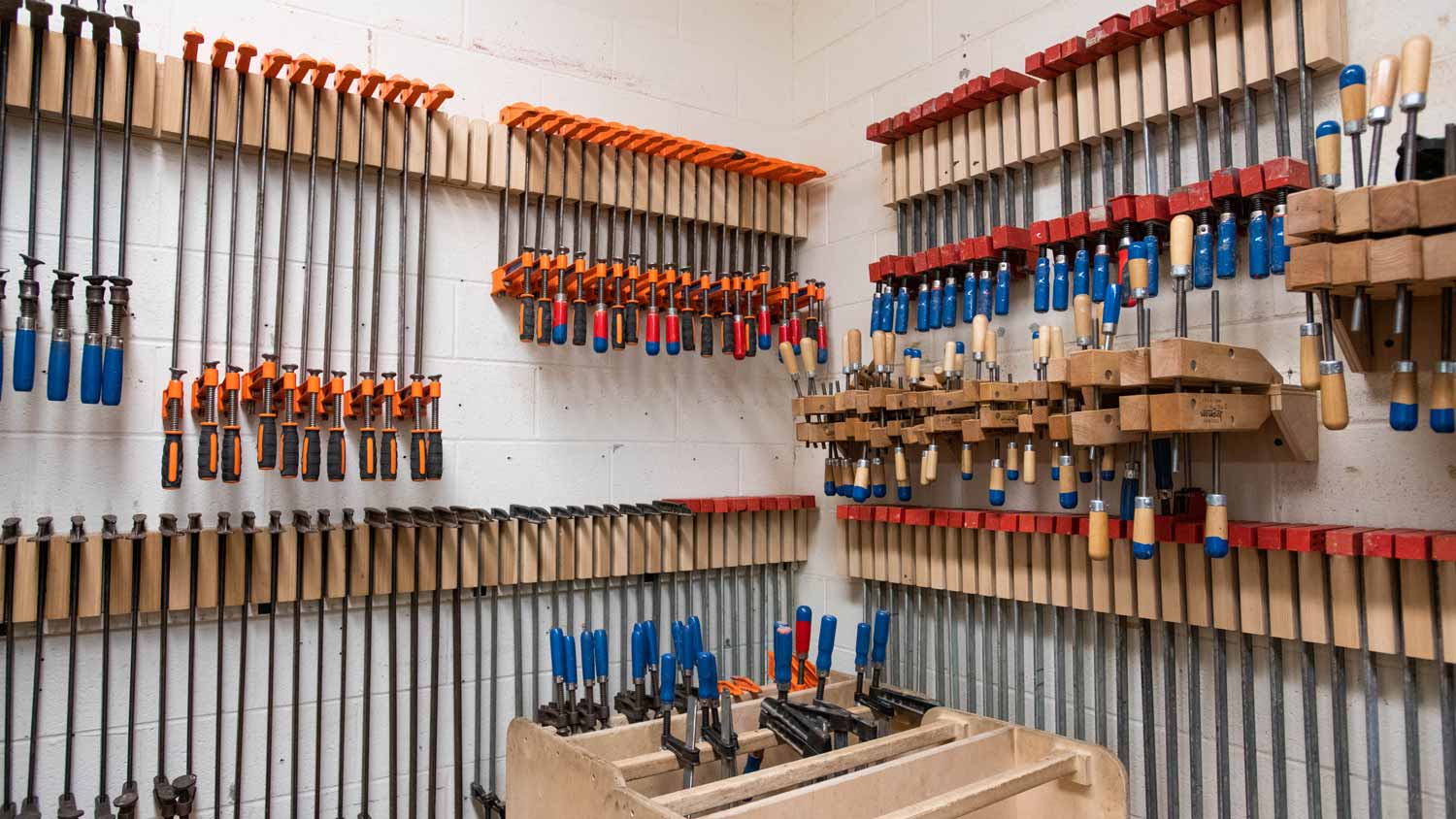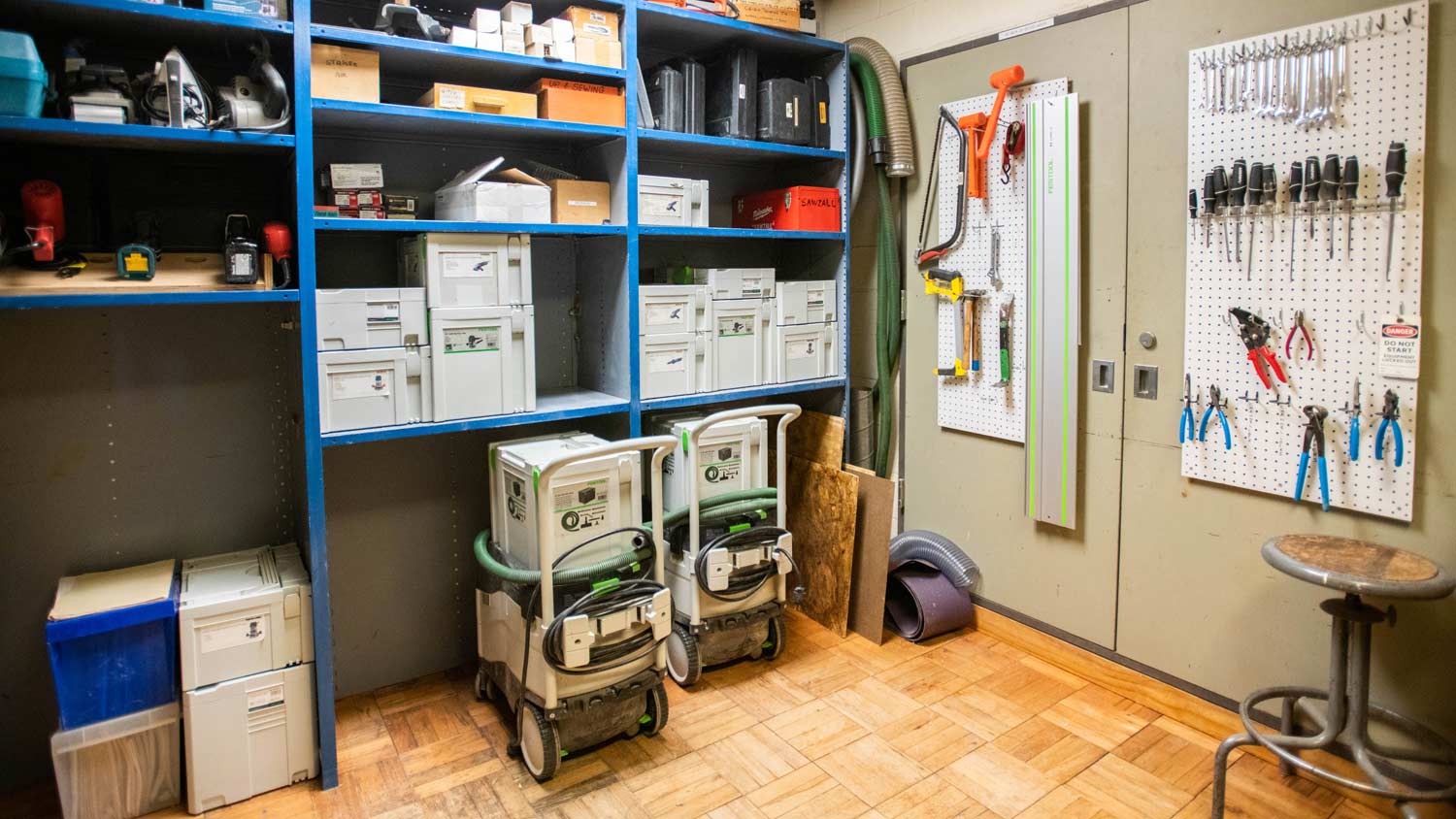Furniture Design Associate in Occupational Studies Degree

Furniture Design
Associate in Occupational Studies Degree
- RIT /
- College of Art and Design /
- Academics /
- Furniture Design AOS
Craft the future of furniture with an AOS program in Furniture Design. Create functional art for the world.
Overview for Furniture Design AOS
An intensive course of study combining foundations in art and design with two years of study in woodworking and furniture design. For individuals not seeking the BFA or MFA degree, the associate degree will provide you with many of the fundamentals to begin a career in woodworking and furniture design.
The AOS degree in furniture design is a highly-focused, two-year course of study. Students learn how to use and care for basic hand tools and begin to explore the technical and visual potential of wood. Over the two-year experience, increasingly sophisticated techniques and design concepts are introduced. Students complete courses in two-dimensional design, three-dimensional design, freehand drawing, technical drawing, furniture history, and crafts business practices.
Featured Work and Profiles
-
Why You Belong in RIT's College of Art and Design
Todd Jokl, Mari Jaye Blanchard, Melissa Dawson, Clay Patrick McBride Get an in-depth look at RIT's College of Art and Design from our faculty and students. Let us share with you how our community of artists pushes the boundaries of creativity and innovation. And...
Read More about Why You Belong in RIT's College of Art and Design -
Tables, Chairs and Wall Decor
Yichi Cheng A selection of work by furniture design student Yichi Cheng
Read More about Tables, Chairs and Wall Decor -
Seating Projects
Jared Alon A selection of seating work by furniture design student Jared Alon
Read More about Seating Projects -
-
Curriculum for 2025-2026 for Furniture Design AOS
Current Students: See Curriculum Requirements
Admissions and Financial Aid
First-Year Admission
First-year applicants are expected to demonstrate a strong academic background that includes:
- 4 years of English
- 3 years of social studies and/or history
- 3-4 years of mathematics
- 2-3 years of science
- Studio art experience and a portfolio of original artwork are required. View Portfolio Requirements for more information.
Transfer Admission
Transfer applicants should meet these minimum degree-specific requirements:
- Studio art experience and a portfolio of original artwork are required. View Portfolio Requirements for more information.
Financial Aid and Scholarships
100% of all incoming first-year and transfer students receive aid.
RIT’s personalized and comprehensive financial aid program includes scholarships, grants, loans, and campus employment programs. When all these are put to work, your actual cost may be much lower than the published estimated cost of attendance.
Learn more about financial aid and scholarships
Accreditation
Related News
-
September 24, 2025

New School of Film and Animation director, faculty roles for 2025-26
Ricky Figueora taking over as the new director of RIT's School of Film and Animation headlines exciting promotions and additions to the College of Art and Design faculty.
-
November 6, 2023

Prospective students explore RIT art and design programs at National Portfolio Day event
The College of Art and Design welcomed 226 young artists to campus for its National Portfolio Day event, where prospective students met one-on-one with faculty about their artwork and different programs.
-
October 4, 2022

RIT welcomes prospective students for National Portfolio Day
RIT's College of Art and Design faculty, along with those at 25 other top art and design schools, reviewed students' portfolios as they prepared their artwork for the college admissions process.
Contact
- Andy Buck
- Professor, American Crafts
- School of Art
- College of Art and Design
- aabsac@rit.edu
School for American Crafts













